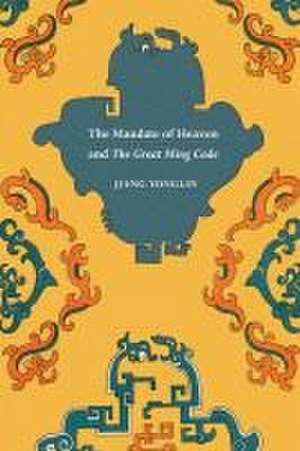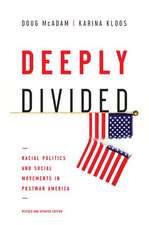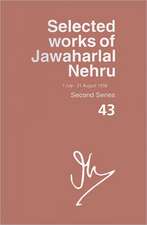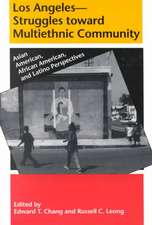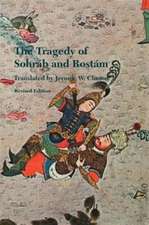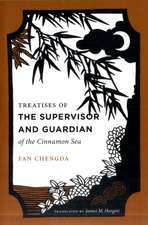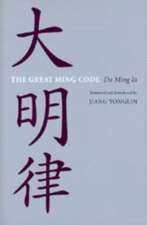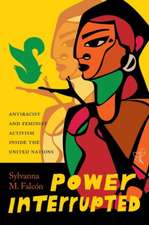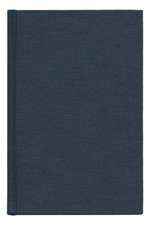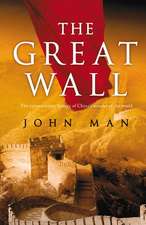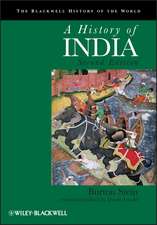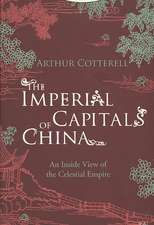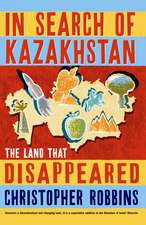The Mandate of Heaven and The Great Ming Code: Asian Law Series
Autor Jiang Yonglinen Limba Engleză Hardback – 20 sep 2015
This companion volume to Jiang Yonglin's translation of The Great Ming Code (2005) analyzes the thought underlying the imperial legal code. Was the concept of the Mandate of Heaven merely a tool manipulated by the ruling elite to justify state power, or was it essential to their belief system and to the intellectual foundation of legal culture? What role did law play in the imperial effort to carry out the social reform programs?
Jiang addresses these questions by examining the transformative role of the Code in educating the people about the Mandate of Heaven. The Code served as a cosmic instrument and moral textbook to ensure "all under Heaven" were aligned with the cosmic order. By promoting, regulating, and prohibiting categories of ritual behavior, the intent of the Code was to provide spiritual guidance to Chinese subjects, as well as to acquire political legitimacy. The Code also obligated officials to obey the supreme authority of the emperor, to observe filial behavior toward parents, to care for the welfare of the masses, and to maintain harmonious relationships with deities. This set of regulations made officials the representatives of the Son of Heaven in mediating between the spiritual and mundane worlds and in governing the human realm.
This study challenges the conventional assumption that law in premodern China was used merely as an arm of the state to maintain social control and as a secular tool to exercise naked power. Based on a holistic approach, Jiang argues that the Ming ruling elite envisioned the cosmos as an integrated unit; they saw law, religion, and political power as intertwined, remarkably different from the "modern" compartmentalized worldview. In serving as a cosmic instrument to manifest the Mandate of Heaven, The Great Ming Code represented a powerful religious effort to educate the masses and transform society.
| Toate formatele și edițiile | Preț | Express |
|---|---|---|
| Paperback (1) | 300.06 lei 6-8 săpt. | |
| MV – University of Washington Press – 31 oct 2013 | 300.06 lei 6-8 săpt. | |
| Hardback (1) | 646.78 lei 6-8 săpt. | |
| MV – University of Washington Press – 20 sep 2015 | 646.78 lei 6-8 săpt. |
Preț: 646.78 lei
Preț vechi: 798.49 lei
-19% Nou
Puncte Express: 970
Preț estimativ în valută:
123.76€ • 128.96$ • 102.47£
123.76€ • 128.96$ • 102.47£
Carte tipărită la comandă
Livrare economică 03-17 aprilie
Preluare comenzi: 021 569.72.76
Specificații
ISBN-13: 9780295999029
ISBN-10: 0295999020
Pagini: 256
Dimensiuni: 152 x 229 x 15 mm
Greutate: 0.52 kg
Editura: MV – University of Washington Press
Seria Asian Law Series
ISBN-10: 0295999020
Pagini: 256
Dimensiuni: 152 x 229 x 15 mm
Greutate: 0.52 kg
Editura: MV – University of Washington Press
Seria Asian Law Series
Cuprins
Notă biografică
Recenzii
"For students interested in these and other questions concerning Chinese law or religion in the late imperial period, Jiang's learned study should be an obvious starting point." -Leo K. Shin, Journal of Chinese Religions "A necessary correction to the conventional views." --Ziaoqun Xu, author of Frontier of History in China "Arguing against a scholarly tradition that sees Chinese law as a purely secular instrument of despotic power, Jiang Yonglin seeks to place that tradition in the context of a China-centered Chinese history. . . . A learned and thoughtful work." --Michael Marme, Journal of Asian Studies
"For students interested in these and other questions concerning Chinese law or religion in the late imperial period, Jiang's learned study should be an obvious starting point." -Leo K. Shin, Journal of Chinese Religions "A necessary correction to the conventional views." --Ziaoqun Xu, author of Frontier of History in China "Arguing against a scholarly tradition that sees Chinese law as a purely secular instrument of despotic power, Jiang Yonglin seeks to place that tradition in the context of a China-centered Chinese history... A learned and thoughtful work." --Michael Marme, Journal of Asian Studies
"For students interested in these and other questions concerning Chinese law or religion in the late imperial period, Jiang's learned study should be an obvious starting point." -Leo K. Shin, Journal of Chinese Religions "A necessary correction to the conventional views." --Ziaoqun Xu, author of Frontier of History in China "Arguing against a scholarly tradition that sees Chinese law as a purely secular instrument of despotic power, Jiang Yonglin seeks to place that tradition in the context of a China-centered Chinese history... A learned and thoughtful work." --Michael Marme, Journal of Asian Studies
